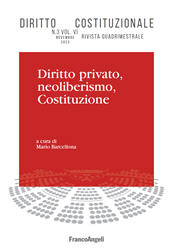La funzione sociale della proprietà e il diritto europeo : i controlimiti, il 'dialogo tra le Corti' e il sonno della politica
15-34 p.
Il contratto di diritto europeo è uno strumento di attuazione dell'"economia sociale di mercato fortemente competitiva" (art. 3 T.U.E.). La sua regolazione mira a ripulire il mercato delle rendite di posizione connesse a squilibri strutturali di potere ("asimmetrie"). La forma originaria di asimmetria è quella informativa la quale trova nella dir. UE 93/13 in materia di clausole abusive e negli artt. 33 ss. cod. cons. in materia di clausole vessatorie la risposta ispirata alla tutela del consumatore. Il contrasto all'asimmetria è all'origine di altri interventi legislativi di matrice europea, anche se in questi casi essa si presenta in una veste diversa dall'asimmetria informativa. [Testo dell'editore].
The European law contract is an instrument for implementing the "highly competitive social market economy" (art. 3 T.E.U.). Its regulation aims to clean up the market of position rents linked to structural imbalances of power ("asymmetries". The original form of asymmetry is the information one which is found in directive 93/13 regarding unfair clauses and in the articles. 33 ff. code cons. on the subject of unfair terms, the response inspired by consumer protection. The fight against asymmetry is at the origin of other legislative interventions of European origin, even if in these cases it presents itself in a different guise from information asymmetry. [Publisher's text].
-
Artikel aus derselben Ausgabe (einzeln erhältlich)
-
Informationen
ISSN: 2611-3376
KEYWORDS
- Tutela del consumatore, Promozione della concorrenza, Regolazione europea del contratto, Squilibrio di potere contrattuale, Nullità di protezione e nullità di diritto comune;
- Proprietà, funzione sociale, Carta dei diritti EU, conflitti di principi, controlimite
- Property, Social function, EU Charter of Fundamental Rights, Conflict between principles, Counter-limit


